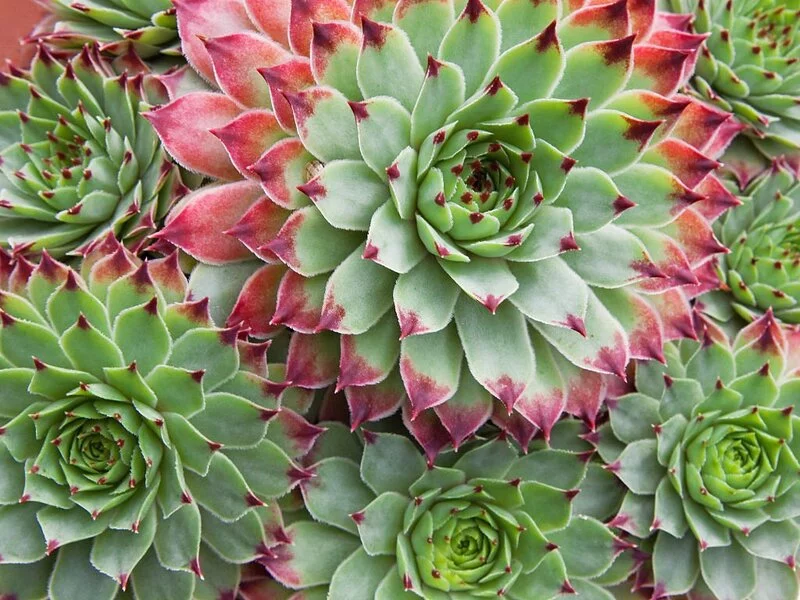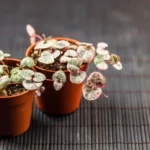You must be here because you have a charming flock of ‘Hens and Chicks’ plants that need a new home. You’re in luck, as I’ve got the perfect guide to help you with that. These eye-catching succulents are not just attractive but also incredibly resilient, making them perfect for all kinds of gardeners – from the pros to the green-thumbed beginners. So, buckle up, my fellow plant-lover, because we’re about to delve into the enchanting world of these delightful plants!
Hens and Chicks Plants
‘Hen and Chicks’, also known as Sempervivum, are attractive succulents that come in a variety of shapes and colors. This plant family gets its quirky name from the unique growth pattern it follows. The ‘hen’, or the mother plant, sends out rosette-shaped offsets called ‘chicks’. These ‘chicks’ cluster around their ‘mother’ forming an endearing plant family. These plants are not only pretty to look at but are also quite hardy, tolerating a range of climates and soils.
- REAL SUCCULENTS: Each pack includes 3 sempervivum succulents in 2″ succulent pots for plants. Grow our decorative plants at home or display as office plants to enjoy nature at work. Order real plants for delivery prime to refresh your space today.
- EASY LIVE PLANTS: This easy plant variety pack features low light house plants that make indoor plant decor effortless. Display your live succulents with carefree live house plants like pothos, aloe vera, snake plants, philodendron, hoya and more.
- PLANT LOVER GIFTS: Give the gift of unique mini plants. Pair with succulent soil, succulent fertilizer and plant accessories as thoughtful succulent gifts. Our real succulents are also fun plant gifts and succulent party favors for special occasions.
- PORCH PLANTS & PATIO DECOR: More than a house plant, these succulent plants thrive as patio plants and apartment balcony decor in warmer climates. In seasonal regions, transfer your mini succulents indoors into cute plant pots during colder months.
Best Time to Transplant Hens and Chicks
Now, when it comes to giving your ‘Hens and Chicks’ a new home, timing is everything. The best time to transplant these plants is during the cool, early spring, before they start their active growing period. This allows them to settle into their new environment and develop strong roots before they start putting out new growth. But remember, these plants are hardy. So, if you miss the spring window, don’t worry! They’re robust enough to be transplanted at other times of the year as well. Just avoid extreme temperature conditions for the best results.
- Large uniquely shaped planter perfect for succulents or any plantings requiring a mid-depth bowl
- Two great faux Stone finishes – delivered with removable drainage plug
- Thick resin construction with Stone Dust and silicon added for weight and feel
- Lightweight and easy to move – UV treated for years of Use
- See Dimensions in picture
Preparing the New Planting Site
Before we uproot our little plant family, let’s make sure their new home is ready. ‘Hens and Chicks’ prefer well-drained soil and plenty of sunlight. A sunny spot with some afternoon shade would be perfect. Prepare the planting site by loosening the soil with a garden fork or trowel and mixing in some coarse sand or perlite. This will improve the soil’s drainage and provide the ideal growing conditions for our succulent friends.
How to Remove Hens and Chicks for Transplanting
Our next step is to carefully remove the plants from their current location. Start by watering the plant a day before the planned move. This softens the soil and reduces stress on the plant during the removal. On the day, use a garden trowel to dig around the mother plant and its chicks, taking care not to damage the roots. Lift the plant cluster carefully from the soil, making sure to keep as much of the root system intact as possible.
Step-by-Step Guide to Transplanting Hens and Chicks
Now, we’re ready for the move. Here’s the easy-peasy guide to do it:
- Dig a hole in the prepared planting site. It should be wide and deep enough to accommodate the plant’s roots.
- Place the plant in the hole, ensuring that the base of the mother plant is level with the soil surface.
- Backfill the hole with the soil, firming it gently around the base of the plant.
- Water the plant thoroughly but avoid overwatering. ‘Hens and Chicks’ don’t like soggy soil.
- If you’re planting multiple ‘Hens and Chicks’, make sure to leave about 6 inches of space between each plant. They need space to produce their chicks.
And voila! You’ve successfully moved your ‘Hens and Chicks’. In a few weeks, they will adapt to their new home and continue to grow, adding charm to your garden.
- LIGHT APPLICATIONS – A balanced mix of essential nutrients with low NPK rates to gently feed your live cacti and succulents. It help enhance root development, color vibrancy, beautiful bloom, and stem growth in both plant types.
- LASTS LONGER, FOR LESS – Easy, ready to use granular formula feeds your plants consistently for 9 months! Simply poke holes or sprinkle around your pot mix, water, and watch your succulent/cactus thrive! Perfect for pots with pumice, pebbles, gravel, perlite, and other organic potting soil mixes.
- LIQUID ALTERNATIVE – Excellent alternative to liquid fertilizer in a spray bottle. Great for houseplants that need consistent nutrition year round but less watering.
- INDOOR AND OUTDOOR USE – Conveniently packaged and ideal to use indoors or around the whole house. Plant food made especially for succulents and cacti in different pots and containers – can be applied even in a terrarium kit!
- PERFECT FOR ALL TYPES – Expertly formulated to be a long term nutrient booster for your potted air plants, aloe vera, string of pearls, desert rose, jade, plumeria, christmas cactus, burros tail, dragon fruit, echeveria, sempervivum, crassula, aeonium, haworthia, and more!
Caring for Transplanted Hens and Chicks
After the big move, your ‘Hens and Chicks’ need a little extra care to settle in. Keep the soil slightly moist for the first few weeks to help the roots establish. But remember, these plants are succulents, they don’t like waterlogged soil. So, don’t overdo it with the watering can. Also, keep an eye out for any sign of sunburn. If the leaves start to turn brown or white, you might need to provide a bit of shade, especially during the hottest part of the day.
Common Mistakes and Troubleshooting
Transplanting ‘Hens and Chicks’ is pretty straightforward, but there are a couple of things that can trip up even the most experienced gardeners. If your plants seem unhappy after the move, here are a few possible problems:
- Overwatering: If your plants’ leaves are turning yellow or transparent, you’re probably giving them too much water. Let the soil dry out before the next watering.
- Not enough light: ‘Hens and Chicks’ love the sun. If they don’t get enough light, they might start to stretch out or lose their vibrant color. Try moving them to a sunnier spot if you can.
- Poor drainage: These plants hate soggy feet. If the soil is staying wet for a long time after watering, mix in some more sand or perlite to improve drainage.
Conclusion
Transplanting ‘Hens and Chicks’ might sound like a delicate task, but with a little care and attention, it’s a piece of cake. Remember, the key to a happy plant is the right balance of sun, water, and well-draining soil. So, roll up your sleeves, grab your garden trowel, and give your ‘Hens and Chicks’ the perfect new home.







